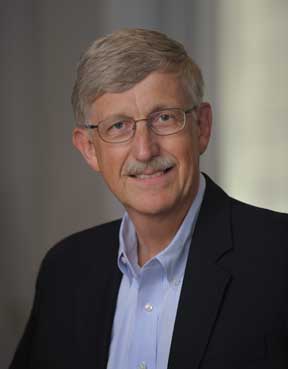
It was really as a medical student, and later as a resident, encountering the realities of what disease and the specter of death does to human beings, that I began to wonder about this (faith).
Some of my patients were clearly relying very heavily on their faith as a source of strength in circumstances that were pretty awful. They had terrible diseases from which they were probably not going to escape, and yet instead of railing at God, they seemed to lean on their faith as a source of great comfort and reassurance.
They weren’t, somehow, perceiving it as the really awful thing that it seemed to me to be. And that was interesting and puzzling and unsettling.
As I began to ask a few questions of those people, I realized something very fundamental: I had made a decision to reject any faith view of the world without ever really knowing what it was that I had rejected. And that worried me. As a scientist, you’re not supposed to make decisions without the data. It was pretty clear I hadn’t done any data collecting here about what these faiths stood for.
Now, I was still pretty sure that faith traditions were all superstition and something that would not apply to me, and something that I wouldn’t be interested in. But I did feel compelled to find out a bit more about what it was that I had rejected. So with an intention of shooting this all down, I went to speak to a Methodist minister in Chapel Hill, which is where I was at the time.
I sat in his office and made all sorts of accusations, and probably said blasphemous things about the faith that he stood for, but sincerely asked him to help me find out what it was all about. And he was very tolerant and patient and listened and suggested that, for starters, it might be good if I read a little bit more about what these faiths stood for.
And perhaps the Bible would be a good place to start. I wasn’t so interested in that at that point. But he also said, “You know, your story reminds me a little bit of somebody else who has written about his experience – that Oxford scholar, C.S. Lewis.”
I had no idea, really, who Lewis was. The idea that he was a scholar, though, that appealed to my intellectual pride. Maybe somebody with that kind of a title would be able to write something that I could understand and appreciate.
So this wonderful minister gave me his own copy of Mere Christianity, Lewis’s slim tome that outlines the arguments leading to his conclusion that God is not only a possibility, but plausibility. That the rational man would be more likely, upon studying the facts, to conclude that choosing to believe is the appropriate choice, as opposed to choosing not to believe.
That was a concept I was really unprepared to hear. Until then, I don’t think anyone had ever suggested to me that faith was a conclusion that one could arrive at on the basis of rational thought. I had kind of assumed that faith was something that you arrived at, either because it was drummed into your head when you were a little kid or by some emotional experience, or some sort of cultural pressure.
The idea that you would arrive at faith because it made sense, because it was rational, because it was the most appropriate choice when presented with the data that was a new concept. And yet, reading through the pages of Lewis’s book, I came to that conclusion over the course of several very painful weeks.
Dr. Francis Collins is the director of the National Human Genome Research Institute. He converted from atheism to Christianity after reading several works by C.S. Lewis.
Francis Collins






